Featured
 Florida NAACP, Gov. Ron DeSantis clash over proposed travel advisory. Governor call it a “joke.” By Zac Anderson / USA Today
Florida NAACP, Gov. Ron DeSantis clash over proposed travel advisory. Governor call it a “joke.” By Zac Anderson / USA Today
Florida Gov. Ron DeSantis is clashing with the state’s chapter of the NAACP over the civil rights group’s suggestion that a travel advisory should be issued for the state because of how the governor’s policies are impacting people of color.
Members of the NAACP Florida chapter gathered in Orlando Saturday and unanimously voted to ask the group’s national board to issue the travel advisory, according to the Tampa Bay Times and WFTS-TV. One such advisory was issued for Missouri in 2017 due to policies the NAACP deemed discriminatory. “We’re just not going to take it anymore, we’ve been taking it long enough,” said Isaiah Rumlin, president of the NAACP’s branch in Jacksonville, which is supporting the push for a travel advisory. Read more
Related: DeSantis isn’t GOP savior. Most US aren’t fans of his ‘free’ Florida. By Rex Huppke / USA Today
Related: Judge Ron DeSantis By His Actions. By Brian Klaas / The Atlantic
Political / Social
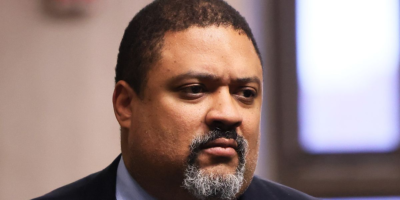 Alvin Bragg Rips House GOP Chairs After Additional Inquiries Into Trump Case. By Ben Bianchet / HuffPost
Alvin Bragg Rips House GOP Chairs After Additional Inquiries Into Trump Case. By Ben Bianchet / HuffPost
Bragg told top House Republicans they were “not appropriate” after their follow-up letter on the Trump probe on Saturday.
Bragg, who slammed the GOP leaders’ “unprecedented inquiry” in a letter earlier this week, took on a second letter about the case co-authored by Reps. Jim Jordan (R-Ohio), James Comer (R-Ky.) and Bryan Steil (R-Wis.) ― lawmakers who lead the House judiciary, oversight and administration committees, respectively. Bragg, in his response on Saturday, asserted that his office evaluates cases “based on facts, the law and the evidence. “It is not appropriate for Congress to interfere with pending local investigations,” Bragg wrote. “This unprecedented inquiry by federal elected officials into an ongoing matter serves only to hinder, disrupt and undermine the legitimate work of our dedicated prosecutors.” Read more
Related: Manhattan DA probing Trump received death threat letter with white powder. By , and / NBC News
Related: The Most Disturbing Part of Trump’s Latest Rant. By David A. Graham / The Atlantic
Related: Central Park Jogger Case Shaped Trump and Bragg Differently. By Eric Cortellessa / Time
 The Republican Plan to Make Voting Irrelevant. By Sherrilyn Ifill / Slate
The Republican Plan to Make Voting Irrelevant. By Sherrilyn Ifill / Slate
The ability of the governor to appoint a nominee to fill the unexpired term of a senator without restrictions is the law in 35 states. But McConnell urged, and the Kentucky Legislature took the step of changing that state’s law—overriding the veto of the governor to do so—in a way that assured that Republicans would maintain control of McConnell’s seat should it become vacant.
This effort—to remove powers from elected representatives who are Democrats—has become the new method of disenfranchising voters and maintaining perpetual Republican political power. Fulton County District Attorney Fani Willis, not widely regarded as a reform prosecutor, made the presumably unpardonable decision to convene a grand jury to investigate the effort of Donald Trump to compel Georgia officials to fraudulently award him votes he did not win in the 2020 election. In the wake of what were reported to be “imminent” indictments resulting from Willis’ investigations, the Georgia Legislature passed a legally dubious bill that would create commissions empowered to remove elected prosecutors from office. Read more
Related: Republican vs. DC battle set for Round 2. By Al Weaver / The Hill
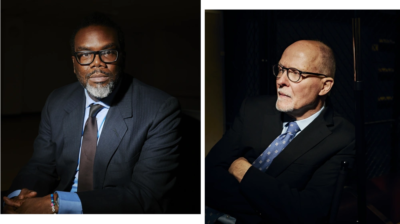 Race dominates final days of the Chicago mayoral election. By Natasha Korecki / NBC News
Race dominates final days of the Chicago mayoral election. By Natasha Korecki / NBC News
Paul Vallas, a white moderate with a tough-on-crime-agenda, faces Brandon Johnson, a Black progressive with the support of the Chicago Teachers Union.
In the closing days of the April 4 runoff contest, it’s the issue of race that’s defining the election. It’s playing out in one of the most segregated cities in the country, where a Black progressive is competing against a white moderate and where the course of the city’s next four years, including the safety of its residents, may very well turn on the coveted Black vote — a vote neither Johnson nor Vallas won in the first round. Read more
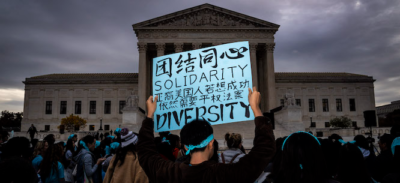 A New Path to Diversity. By Richard D. Kahlenberg / Dissent
A New Path to Diversity. By Richard D. Kahlenberg / Dissent
The Supreme Court is poised to overturn race-based affirmative action. But preferences based on socioeconomic disadvantage—which are both politically popular and legally sound—could produce similarly high levels of diversity.
The impulse behind racial affirmative-action programs comes from a very good place: the desire to provide extra support to Black, Hispanic, and Native American people—groups that have been oppressed throughout American history. But it appears that these programs will soon be outlawed. The good news is that there is a politically popular and legally sound alternative that can produce high levels of racial and economic diversity: preferences based on socioeconomic disadvantage. While the U.S. Supreme Court has long been wary of government policies that treat people differently on the basis of race, the modern Court does not have this sort of hesitation about programs that treat citizens differently on the basis of economic status—from the progressive income tax to means-tested programs like food stamps. Read more
Related: Should Latinos Be Considered a Race? By Geraldo Cadava / The New Yorker
 In the fight over AP African American Studies, Black students are being left behind. By Michelle Garcia / NBC News
In the fight over AP African American Studies, Black students are being left behind. By Michelle Garcia / NBC News
A course meant to inspire more Black students to take AP classes sparked a culture war instead.
The mere existence of the high school Advanced Placement course in African American Studies has become a political wedge. It was created for two primary reasons: to legitimize Black history as a necessary subject matter in American schools and to reverse the underrepresentation of Black students in AP courses. Instead, in some states, the course has wandered into the crosshairs of a culture war intent on banning all forms of race-conscious and inclusive education. Read more
Ethics / Morality / Religion
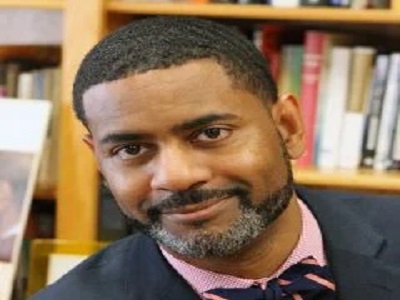 Practicing prophetic grief. By Otis Moss III / RNS
Practicing prophetic grief. By Otis Moss III / RNS
The Rev. Otis Moss III is senior pastor of United Church of Christ in Chicago and a professor of homiletics at Mercer University McAfee School of Theology. This commentary is adapted from his latest book, “Dancing in the Darkness: Spiritual Lessons for Thriving in Turbulent Times.”
Eight years ago, a young white man, 21 years of age, walked into the church in Charleston, South Carolina, known as Mother Emanuel, one of the oldest and most revered Black churches in the South. He killed nine people. His goal was to provoke all African Americans to violence. He wanted, he said, “to start a race war.” News of the massacre sparked national outrage. As Ta-Nehisi Coates has argued, it is a false choice either to forgive or to take revenge. We must learn to grieve prophetically, seeing our world, even at its darkest, with the spirit and energy of the prophets of the Hebrew Bible. Read more
Related: Americans need to rediscover the lost art of tolerance. By Gary Abernathy / Wash Post
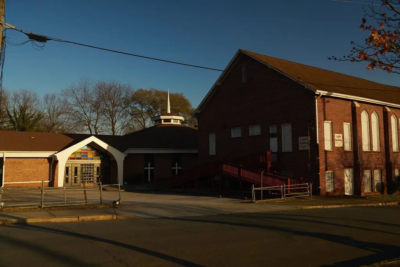 Black, Evangelical and Torn. By Caleb Gayle / NYT
Black, Evangelical and Torn. By Caleb Gayle / NYT
With America’s white conservatives increasingly drawn to Christian nationalism, many Black believers feel caught between their faith and the long shadow of history. Shown is Cornerstone Church, started by Onwuchekwa. Credit…Ruddy Roye for The New York Times
The S.B.C. and white evangelicals ought to be able to pitch a tent large enough to accommodate Black evangelicals like him. But for Onwuchekwa, the fissure lies in the inability of the S.B.C. and white evangelicals to confront and make up for in tangible ways their historical and ongoing treatment of their congregants of color, especially Black people. Like the history of America, the history of the S.B.C. is inextricably tied to race, no matter how much evangelicals try to overlook that connection. Read more
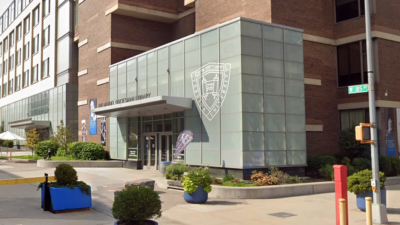 Amid rise in antisemitism, Yeshiva University focuses on Holocaust education. By Kathryn Post / RNS
Amid rise in antisemitism, Yeshiva University focuses on Holocaust education. By Kathryn Post / RNS
The Holocaust ‘is being inadvertently or consciously de-Judaized,’ according to Yeshiva University’s Shay Pilnik. Shown is The Mendel Gottesman Library at Yeshiva University in the Washington Heights neighborhood of Manhattan, New York.
“We see the rise in antisemitism, most survivors are gone, and we see a lot of clues that the Holocaust is being forgotten,” Pilnik told Religion News Service. “Now is the time, we feel, to step up and rise to the occasion.” “My generation, we grew up studying the Holocaust for two days in social studies watching a scary movie. That’s the extent of our Holocaust education. And maybe I took a course in college,” Ecker told RNS. “That’s not enough to adequately prepare somebody to teach the Holocaust in a way that’s going to be meaningful.” Read more
Historical / Cultural
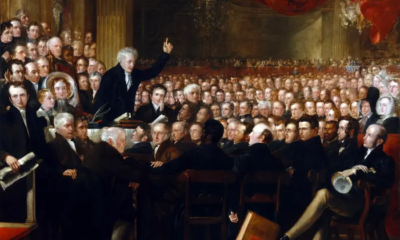 Like it or not, we all bear some responsibility for slavery. By The Guardian Letters
Like it or not, we all bear some responsibility for slavery. By The Guardian Letters
Shown is the Anti-Slavery Society Convention, 1840 – an oil on canvas by Benjamin Robert Haydon. It depicts the first meeting of the World Anti-Slavery Convention at Exeter Hall in London, in June 1840. Photograph: Pictures from History/Universal Images Group/Getty Images
When it comes to atoning for the slave trade, we need to acknowledge how much we have benefited, says Prof Sir Roderick Floud. Plus letters from Nic Madge, Morris Gyles, Rex Knight and Kit Jackson. “My ancestors gained nothing from slavery,” writes John Cookson (Letters, 15 March). Sadly, he is wrong. Everyone in Britain and the rest of the developed world has benefited from at least 200 years of cheap tobacco, coffee, chocolate and, above all, tea and sugar, produced by slaves or indentured labourers (or, today, low-paid workers) in conditions even worse than those his forebears experienced in Manchester and Salford in the 1840s. In addition, they were probably paid to make clothes out of raw cotton grown by slaves in the southern United States. Read more
Related: Our planet needs a World’s Fair focused on slavery and colonialism. By Phillip Kennicott / Wash Post
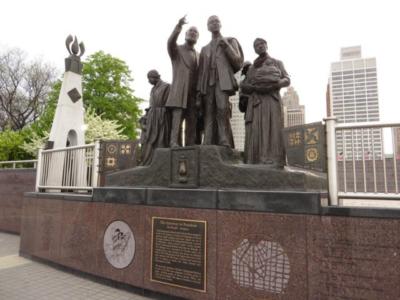 Applying Migration Studies to the History of Black Fugitivity in the Antebellum Urban South. By Jaimie D. Crumley / AAIHS
Applying Migration Studies to the History of Black Fugitivity in the Antebellum Urban South. By Jaimie D. Crumley / AAIHS
Shown is the Gateway to Freedom International Memorial to the Underground Railroad, Detroit (Flickr)
The historiography of slavery in the Americas largely asserts that Black enslaved people fled from their enslavers to places where they could achieve legal freedom. In her monograph Escape to the City: Fugitive Slaves in the Antebellum Urban South, historian Viola Franziska Müller indicates that more important than legal freedom for some enslaved people was their desire to escape. For some enslaved people in the antebellum South freedom meant, as slavery studies scholar David Barry Gaspar and Darlene Clark Hines have argued, “not considering themselves to be bound.” Read more
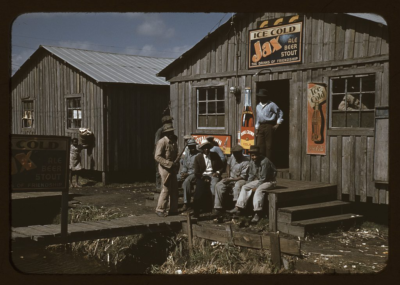 Black Capitalism, Underground Economies, and the Great Depression: West Palm Beach Florida. By Candace Cunningham / AAIHS
Black Capitalism, Underground Economies, and the Great Depression: West Palm Beach Florida. By Candace Cunningham / AAIHS
Migratory laborers outside of a “juke joint” during a slack season, Belle Glade, Florida, February 1941 (NYPL)
Throughout much of the twentieth century, Florida’s warm climate and long sunny days managed to attract the nation’s elites. The notion that Florida was heaven on earth fueled an economic boom in the 1920s. Often left out of this narrative are the Black men and women whose labor made all of this possible. In South Florida, this meant that when wealthy whites flocked to spots like Palm Beach to vacation in high-end hotels or to build luxurious mansions, it became necessary to build a counterpoint—a working-class neighborhood where the workers who assisted the city’s elites could live. That led to the development of two black neighborhoods in West Palm Beach: Northwest and Pleasant City. Read more
 Native American histories show rebuilding is possible and necessary after catastrophe. By B.L. Blanchard / Vox
Native American histories show rebuilding is possible and necessary after catastrophe. By B.L. Blanchard / Vox
What the Medicine Wheel, an indigenous American model of time, shows about apocalypse. Image by PBS
Shikaakwa doesn’t exist. I made it up. It’s the setting of my first novel, The Peacekeeper, an alternate history in which the Americas were never colonized. Shikaakwa is in the place of the city now most often called Chicago. Ininwewi-gichigami now appears on maps as Lake Michigan. Anishinaabe is what my people, the Ojibwe/Chippewa, and my tribe, the Sault Ste. Marie Tribe of Chippewa Indians, call ourselves. Read more
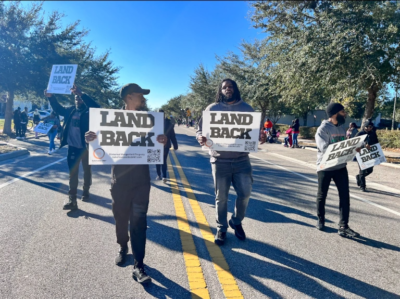 Zora Neale Hurston’s Eatonville Fights To Keep Land to Preserve History. By Aallyah Wright / Capital B
Zora Neale Hurston’s Eatonville Fights To Keep Land to Preserve History. By Aallyah Wright / Capital B
Orange County Public Schools plans to sell the remaining 100 acres of a historic Florida school site to private developers by March 31. The Land Back 1887 organization works during the 2023 MLK Parade in Eatonville, Florida, to inform the community about the planned sale of the remaining Robert Hungerford Preparatory High School site to developers. (Julian Johnson)
Millard Livatt takes pride in knowing the literary destination he’s called home for more than 50 years is still standing. Made famous by the late Zora Neale Hurston, Eatonville, Florida, is one of the oldest Black-incorporated towns in the U.S. Despite high poverty rates, limited job opportunities and food insecurity, Livatt said he looks beyond the challenges and envisions the future of the town — located just 10 minutes from downtown Orlando — as one that is economically thriving and self-sufficient, just as it was following its founding in 1887. Read more
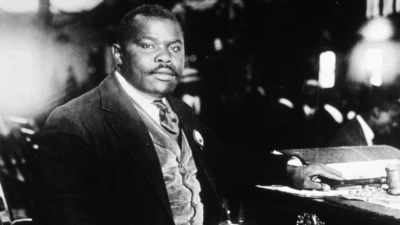 As GOP governors obscure Black history, let’s finally tell the truth about Marcus Garvey. By and
As GOP governors obscure Black history, let’s finally tell the truth about Marcus Garvey. By and
Jamaican born African-American nationalist Marcus Garvey, the founder of the Universal Negro Improvment Association (UNIA).
The suppression of stories integral to the American narrative not only robs us of important historical lessons, but also warps our vision of ourselves and our future — and makes all of our lives less rich. The Jamaican-born Garvey energized millions by calling for an end to colonialism in Africa, for economic justice for the entire African Diaspora and for cultural and political recognition and independence 100 years ago — a time when such declarations were just about unheard of. Read more
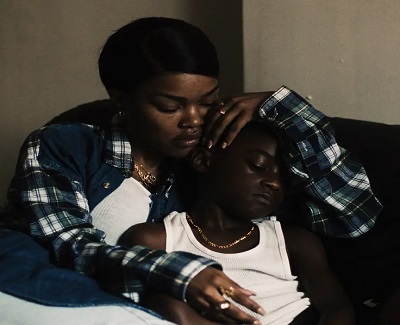 ‘A Thousand And One’ Is The Nuanced Film About Black Motherhood We Need Right Now. By Sage Howard / HuffPost
‘A Thousand And One’ Is The Nuanced Film About Black Motherhood We Need Right Now. By Sage Howard / HuffPost
Through Teyana Taylor’s character in the new movie, director A.V. Rockwell examines the systems that continue to hold us back.
Taylor stars as Inez de la Paz in filmmaker A.V. Rockwell’s “A Thousand and One,” which hits theaters nationwide on March 31. The movie, which has already won a Sundance Film Festival award, offers a compassionate depiction of what it’s like for modern-day Black women raising children while battling financial strife, housing insecurity and mental health challenges. Rockwell peels back the many layers of Black motherhood in a manner that leaves even Black women examining just how deeply they’ve internalized stereotypes that shape their identities. Read more
 25% of Black women say they were denied job interviews because of their hair, survey says. By Claretta Bellamy / NBC News
25% of Black women say they were denied job interviews because of their hair, survey says. By Claretta Bellamy / NBC News
Another quarter of Black women ages 25 to 34 surveyed said they were sent home from work because of their hair.
A majority of Black women say they feel they have to change their hair just to be taken seriously for job opportunities and in professional settings, according to a survey commissioned by LinkedIn and Dove. Approximately 1,000 Black women ages 25 to 64, both part-time and full-time employees, took part in the CROWN Research Study. Some 66% of them said they had changed their hair for a job interview to lessen the chances of being passed over due to hair discrimination. Twenty-five percent of Black women said they believed they were denied a job interview because of their hair. Read more
Site Information
Articles appearing in the Digest are archived on our home page. And at the top of this page register your email to receive notification of new editions of Race Inquiry Digest.
Click here for earlier Digests. The site is searchable by name or topic. See “search” at the top of this page.
About Race Inquiry and Race Inquiry Digest. The Digest is published on Mondays and Thursdays.
Use the customized buttons below to share the Digest in an email, or post to your Facebook, Linkedin or Twitter accounts.